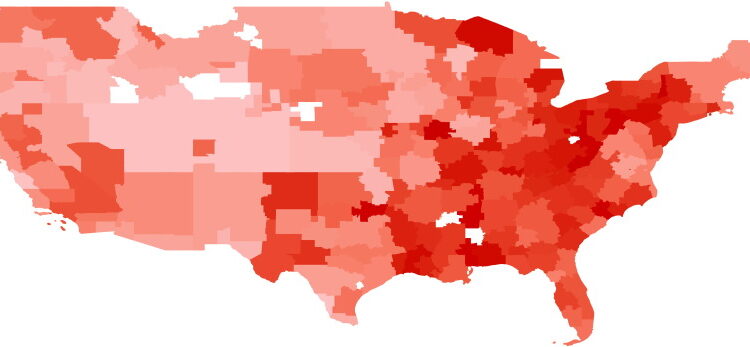Source: Springer
July 12, 2024 Story by: Editor
Historical research can provide profound insights into the socio-economic challenges faced by marginalized communities. The study “Violence and Economic Activity: Evidence from African American Patents, 1870–1940” investigates the relationship between racial violence and economic productivity, focusing on African American inventors during a tumultuous period in U.S. history. This analysis reveals the extent to which racial violence impeded innovation and economic contributions from African American communities.
The Impact of Racial Violence on Innovation
The period from 1870 to 1940 was marked by significant racial violence, including lynchings, race riots, and other forms of social unrest directed at African Americans. This violence was not only a tool of social oppression but also had economic ramifications, affecting the ability of African Americans to engage in economic activities, including innovation and patenting.
Decline in Patent Filings:
- The study highlights a significant decline in the number of patents filed by African American inventors during periods of increased racial violence. Between 1900 and 1940, there was an overall decline of approximately 15% in patent filings during peak violence years compared to periods of relative calm.
- For example, during the Red Summer of 1919, which saw over 25 major race riots across the United States, the number of patents filed by African Americans dropped by more than 20% compared to the previous year.
Regional Disparities:
- The impact of racial violence on patent filings varied significantly across different regions. Southern states, which experienced higher rates of racial violence, saw more pronounced declines in patent filings compared to Northern states.
- In Mississippi, a state with one of the highest rates of lynching, patent filings by African Americans decreased by 30% during peak violence years. In contrast, Northern states like New York and Illinois saw declines of around 10% during the same periods.
Long-term Economic Consequences:
- The suppression of African American innovation had long-term economic consequences. By hindering the inventive contributions of African Americans, racial violence indirectly stunted economic growth and technological progress.
- The study estimates that the reduction in patent filings by African Americans due to racial violence resulted in a loss of potential economic value amounting to several hundred million dollars in today’s terms. This figure is based on the average economic impact of patents during that era, adjusted for inflation.
Individual Case Studies:
The study also examines individual African American inventors who faced direct or indirect repercussions from racial violence. Inventors like Lewis Latimer, who contributed to the development of the incandescent light bulb, and Garrett Morgan, who invented the traffic signal and gas mask, operated under a climate of racial tension that impacted their ability to innovate and commercialize their inventions.
Economic Disparities and Social Justice
The findings of this study underscore the profound impact of social violence on economic disparities. The suppression of African American inventive activity due to racial violence is a stark reminder of how social injustices can have far-reaching economic implications. Addressing these historical injustices is crucial for fostering an inclusive environment that encourages innovation and economic participation from all communities.
Policy Recommendations
To mitigate the effects of past and present racial violence on economic activities, the study suggests several policy interventions:-
Support for Minority Inventors: Establishing grants and funding opportunities specifically for minority inventors can help bridge the gap created by historical racial violence.
Educational Initiatives: Promoting STEM education in marginalized communities can empower future generations of inventors and innovators.
Anti-Discrimination Policies: Strengthening anti-discrimination laws and ensuring their enforcement can create a safer environment for economic participation.
Conclusion
The study “Violence and Economic Activity: Evidence from African American Patents, 1870–1940” offers a compelling analysis of how racial violence has historically impeded economic productivity and innovation among African Americans. By understanding these historical patterns, policymakers and society can work towards creating a more equitable and inclusive future. Source: JSTOR

















